2007-Press Releases
Launching of Breaking the Rules 2007 – ICDC Press Release
Breaking the Rules, Stretching the Rules 2007
Lack of regulations drives baby food industry to new depths of aggressive marketing, monitoring
results show.
IBFAN, the International Baby Food Action Network, has today released an illustrated report on multinational companies violating the WHO rules on marketing (1). The 150-page report gives graphic details of the
insidious ways in which a dozen heavyweight companies (2) compete with mother’s milk.
The global monitoring report exposes new strategies used by the baby food industry to idealize their products and undermine breastfeeding. The Breaking the Rules, Stretching the Rules 2007 report contains results from
67 countries where companies were evaluated against World Health Assembly marketing requirements introduced since 1981. The report shows that Nestlé, the target of an international boycott and dominant market player, continues widespread violations. It also reveals that the failure to regulate such practices has encouraged other companies, such as the huge NUMICO group (1), to use similar practices to obtain what NUMICO calls ‘stomach share’ (3) from competitors and from breastfeeding.
The International Code and WHA resolutions ban companies from advertising, giving of samples, and other forms of promotion. Although some 70 countries have made the Code and subsequent World Health Assembly resolutions into law or into voluntary agreements with industry, these measures are often not as strong as they should be and only when enforced are they effective.
“The marketing of infant formula, follow-on formula, complement-tary foods and feeding equipment continues to be such a very lucrative business that companies deliberately ignore WHO recommendations in order to compete intensely with one another and against breastfeeding” says Yeong Joo Kean, Legal Advisor to IBFAN and
co-author of the report. Aggressive marketing strategies undermine breastfeeding and mislead those
parents and carers who do use formula.
Mike Brady, Campaigns and Networking Coordinator at Baby Milk
Action, secretariat for the International Nestlé Boycott Committee, said: “The boycott has helped close down some of the tactics Nestlé used in the past, such as promoting complementary food for too early an age, but
we now see the growth of a strategy of medicalising infant feeding, for example promoting formula with ‘brain building blocks’”, a tactic recently outlawed in the Philippines.
The intense competition drives down standards. NUMICO is now rivalling Nestlé in the volume of violations
as it attempts to expand in Asia and elsewhere. As NUMICO has recently been bought over by Danone, IBFAN intends to call on Danone to make fundamental changes in the marketing tactics of the dozen baby food companies it now owns.
Evidence for the report was compiled from June 2004 to October 2007 by monitors in 67 countries from all continents. Some 3000 violation reports were recorded and analysed (2). Code monitoring as documented in this report does not rely on statistical research. IBFAN knows that for each violation found, there are
thousands more of the same since companies mass-produce their materials. And for each violation reported, many more escape the public eye due to lack of monitoring, private deals and cover-ups. Therefore the evidence of Code violations in BTR 2007 represents the proverbial tip of the iceberg.
In the UK contact: Mike Brady at 01223 464420
In Malaysia contact: Yeong Joo Kean at 60 4 890 5799
In Argentina contact: Dr Fernando Vallone at 54 9 11 5162 2884
(1) The International Code of Marketing of Breastmilk Substitutes and 12 subsequent relevant World Health Assembly (WHA) resolutions.
* BTR 2007 was launched at the conclusion of the East Asia and Pacific Training Course on implementing the International Code.
(2) Companies in the report are: Abbott Ross, Bayer, Danone, Friesland, Gerber, Heinz, Hipp, Humana, Mead Johnson, Nestle, Numico, Wyeth and 12 feeding bottle and teat manufacturers.
(3) “stomach share”…NUMICO estimates that only 30% of all food consumed in the first 3 years of life is commercially manufactured. The company has a strategy to capture a larger share of the baby’s stomach worldwide
(4) “Breaking the Rules, Stretching the Rules 2007” was published by ICDC, the International Code Documentation Centre, an IBFAN office which specializes in Code implementation. Soft copies of the report are available on the IBFAN website. Hard copies will be released in December.
